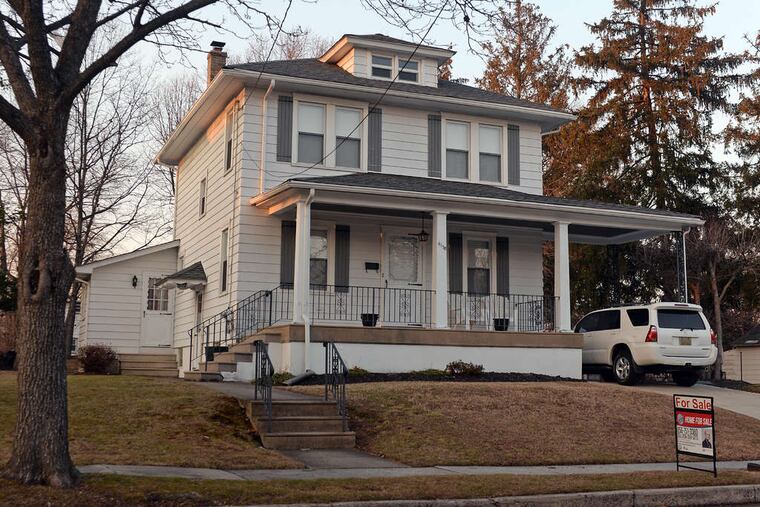With proper planning, selling a parent’s house can be a relatively painless process — or not
Family members consumed by grief may be unable to make decisions, letting homes that may have already languished fall further into disrepair. Siblings may harbor emotional attachments and have unrealistic expectations about the sale price.

Before Ashley Carlson’s father died of cancer in 2016, her only experience navigating the real estate world was finding a place to rent in San Francisco. As executor of his will, Carlson had to clean out and sell his home and a cabin in the mountains — both a couple of hours from where she lives.
Much of the work fell on Carlson, then 28, since the other beneficiary was her older sister, who lives in New York City.
After finding a real estate agent with estate sale experience, Carlson got up to speed on probate, learned about local building codes and repairs that needed to be made, and even told her father’s friend, who had been staying in the cabin, he’d have to move.
"There were a ton of things that were brand new for me, and it was all very, very overwhelming," Carlson recalled.
Fortunately, the house and cabin sold a few months after they were listed.
Dealing with the death of parents is challenging enough, but selling their home can be fraught with land mines, particularly if they die without a will. Family members consumed by grief may be unable to make decisions, letting homes that may have already languished fall further into disrepair. Siblings may harbor emotional attachments and have unrealistic expectations about the sale price.
The task can be difficult and long — or relatively quick and painless. Much depends on the heirs’ ability to ask for help and hiring a professional who knows the local housing market. Experts say the sooner the process begins, the easier it will be. Parents can take steps while they’re alive to help ward off contentious complications.
"It's always a good idea to discuss these matters while loved ones are still with us," observed John Graff, a real estate broker with Ashby & Graff Real Estate in Los Angeles. "The conversation may be difficult and awkward, but it is worth it to have the upfront knowledge so that you're not scrambling while grieving."
Here's what you can do:
Make sure both parents have a will. A 2017 Caring.com survey found that only 42 percent of U.S. adults had estate-planning documents, such as a will or a living trust.
Be prepared to shell out money. Before a home is sold, costs associated with maintaining the property still must be paid to prevent unintended consequences, such as frozen pipes or fines from local jurisdictions for failing to do routine landscaping.
Keep heirs out. The executor should have locks changed as soon as possible. “It can be very difficult and emotionally draining to remove someone from the property” who is not willing to go, said Chuck Vosburgh, a Realtor with NextHome Gulf to Bay in St. Petersburg, Fla.
Get a reality check about price. Have a real estate agent run a competitive market analysis, and consider an appraisal from a licensed appraiser. To avoid appearances of impropriety, don’t hire a friend or family member, especially if there are multiple heirs.
Designate a contact person. The executor should keep all heirs informed. Someone who feels left out may think there’s something odd with the transaction.
The biggest deterrent to selling a parent’s house is usually the emotional attachment of the children. Often, “every little trinket or picture has a memory,” said Michael Zschunke, a Realtor with Berkshire Hathaway HomeServices Arizona Properties in Scottsdale. He added that as difficult as it may be, it’s “best to clean the home out quickly and prepare the house for sale. The longer the process, the more difficult it becomes.”
Experts say that isn’t the time for major renovations. Cosmetic fixes can pay off, but more substantial improvements generally do not. Remove furniture and belongings and show the property vacant or staged. Carpets should be cleaned and painting done, as needed. Hire professional cleaners and clean up the yard.
If the property requires extensive repairs, it may be better to sell as is or consider one of the quick-sale companies that promise fast and easy transactions with no repairs or cleanup. But don’t presume a big payout.
"You can usually expect to receive about 60 to 70 percent of market value," Zschunke said.
Tax consequences must be considered. Estate, inheritance, and income taxes can affect the bottom line, depending on where the property is, where the inheritor lives, and how much money is being inherited, Graff said. Typically there’s a benefit to selling an inherited property soon after receiving rights to it because when a property is inherited after a death, the property value is “stepped up” to fair market value at the time of the owner’s death.
“This means you can sell a property bought in 1970 but not pay the taxes on the value gained over those years,” Graff said.